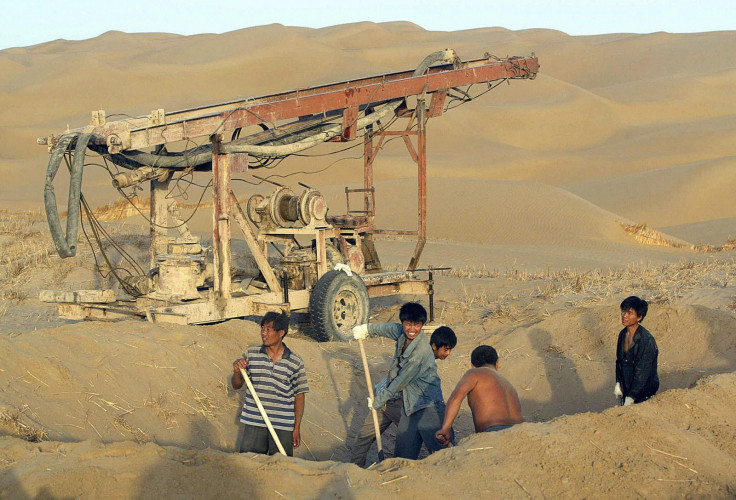Vast hidden 'ocean' found under Chinese desert

Chinese scientists have discovered what could be a huge hidden ocean underneath one of the driest places on earth, the South China Morning Post reported on 30 July.
The Tarim basin in northwestern Xinjiang, China, is one of the driest places on Earth, but the vast amount of salt water concealed underneath could equal 10 times the water found in all five of the Great Lakes in the US.
"This is a terrifying amount of water," said professor Li Yan, who led the study at the Chinese Academy of Sciences' Xinjiang Institute of Ecology and Geography in Urumqi, the Xinjiang capital.
"Never before have people dared to imagine so much water under the sand. Our definition of desert may have to change," he told the South China Morning Post.
Scientists had long suspected that a vast amount of melt water from nearby mountains had slipped beneath the basin, but the exact amount of water remained unknown.
Accidental discovery
Li's team made the discovery by accident. They had actually been looking for carbon dioxide, which is absorbed in certain areas - such as forests and oceans - called "carbon sinks."
Scientists study carbon sinks to gain a greater understanding of climate change.
Around 10 years ago, the team discovered that carbon dioxide had been disappearing into the basin for 10 years, but could not understand why.
After measuring the amount of carbon dioxide in samples from nearly 200 locations across the desert and comparing them to the carbon dioxide in melt water, they were able to calculate how much water had flowed into the basin.
"Our estimate is a conservative figure. The actual amount could be larger," Li told the paper.
The team will now work with other research scientists to see if other underground "oceans" could potentially exist underneath other deserts.
Li said it is likely large amounts of water will be found underneath the deserts, as the amount of carbon they potentially hold could be a trillion tonnes - the same amount of "missing" carbon on the planet.
© Copyright IBTimes 2025. All rights reserved.





















